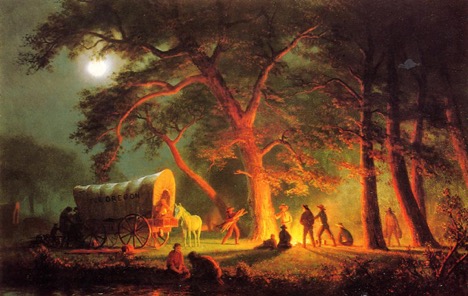And no culture without history.
The Crisis of American National Identity

Statesmen and citizens alike must contend with the relationship between American creed and culture.
In “The Crisis of American National Identity,” an essay adapted from a lecture presented at the Heritage Foundation, Claremont Review of Books Editor Charles Kesler delivered a pointed critique of the case for a culture-driven identity advanced by Samuel Huntington. That debate, which began to emerge over the course of the previous decade, has now moved to the center of political life. Kesler’s case for both a creedal and cultural understanding, with a recognition that creed alone can apprehend and secure what culture cannot, has fresh relevance as a principled and prudent correction to today’s post-Huntingtonian misconceptions.
“Huntington is right, of course,” writes Kesler, “to criticize multiculturalism as destructive of civic unity. But he is wrong to think that Anglo-Protestant culture is the antidote, or even merely our antidote, to multiculturalism and transnationalism…. Huntington’s preference for Anglo-Protestantism—he never establishes it as more than a patriot’s preference, though as a scholar he tries to show what happens if we neglect it—is to that extent perfectly consistent with the claims of the multiculturalists, the only difference being that he likes the dominant culture, indeed, wants to strengthen it, and they don’t.”
“Whether from the Right or the Left,” Kesler continues, “the cultural approach to national identity runs into problems. To know whether a culture is good or bad, healthy or unhealthy, liberating or oppressive, one has to be able to look at it from outside or above the culture. Even to know when and where one culture ends and another begins, and especially to know what is worth conserving and what is not within a particular culture, one must have a viewpoint that is not determined by it. For example, is the culture of slavery, or that of anti-slavery, the truer expression of Americanism? Both are parts of our tradition. One needs some ‘creed,’ it turns out, to make sense of culture. I mean creed, not merely in the sense of things believed (sidestepping whether they are true or not), but in the sense of moral principles or genuine moral-political knowledge. If that were impossible, if every point of view were merely relative to a culture, then you’d be caught in an infinite regress. No genuine knowledge, independent of cultural conditioning, would be possible—except, of course, for the very claim that there is no knowledge apart from the cultural, which claim has to be true across all cultures and times. But then genuine knowledge would be possible, after all, and culturalism would have refuted itself.”
In response to Kesler’s critique, and the broader issues raised today by the debate over the politics of identity, Shadi Hamid, Wilfred McClay, and Anne-Marie Slaughter share their thoughts.
The American Mind presents a range of perspectives. Views are writers’ own and do not necessarily represent those of The Claremont Institute.
The American Mind is a publication of the Claremont Institute, a non-profit 501(c)(3) organization, dedicated to restoring the principles of the American Founding to their rightful, preeminent authority in our national life. Interested in supporting our work? Gifts to the Claremont Institute are tax-deductible.
Messy pluralism may now be the most Americans can attain.
Conservatives must realize that in terms of creed and culture, we are past the point of no return. It's time for an offensive strategy.
America needs many voices to make good on its creed.




